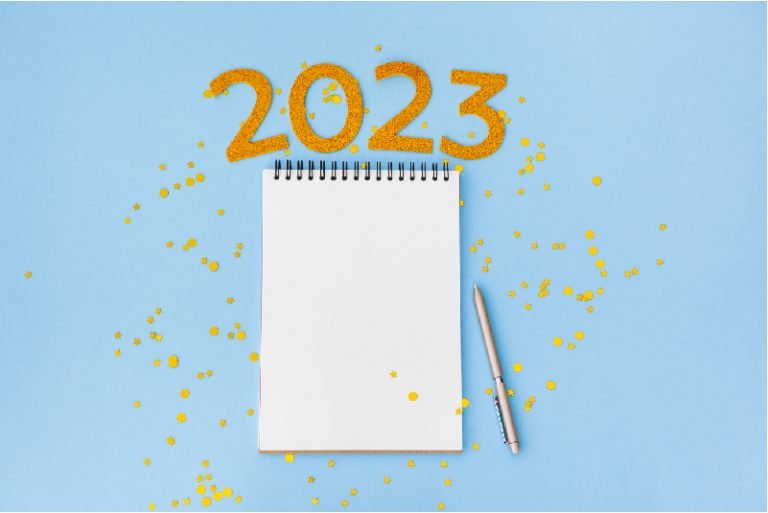by Kristin Vogel-Campbell, Ed.D.
At the beginning of each new year, it is a popular practice to develop resolutions and ways that we can improve ourselves and our personal well-being. Maybe it’s committing to reading more for leisure — or getting more exercise.
An important thing that we can also consider is resolutions for our professional lives. We are tasked with navigating and juggling dozens, sometimes hundreds, of relationships with colleagues, students, and families.
Here are five resolutions that I am committing to for 2023 and beyond, and I hope you will join me.
I Will Be Stepping Away from:
Weaponizing Words
Let me be clear that when words are weaponized by educators, in 99.9% of cases there is no intention to do harm. Despite this, we have to recognize impact more than intention. Over the course of my career, I have witnessed and participated in the weaponization of words and phrases that have impacted students, teachers, education support professionals, and parents. Weaponized words create and reify power imbalances between the speaker and the receiver.
I’ve noticed in meetings with parents over the past few years that school-based members of teams often refer to themselves as experts. Staff have truly earned their credentials and degrees, but let’s not forget that parents are the first experts on their children. It comes off as abrasive when someone labels themselves an expert in order for their opinion or statements to carry more weight than those of family members. Meetings involving eligibility for Special Education services can be tense, and removing additional barriers to a productive conversation is vital.
Working on sick days
Believe me, this is more easily said than done! When I was in the classroom, it was often easier for me to go into work sick than develop sub lesson plans for my students who received intensive instruction in the Resource Specialist Program. COVID has made it more difficult to go into work ill, at least in my current administrative district office position. However, now that working from home is typical in our society, there is an unspoken expectation for those of us in education to work while sick.
I am extremely guilty of this. I had emergency gallbladder surgery in December of 2021, and spent the first week of 2022 at home in bed. My laptop was almost glued to me, but instead of catching up on Netflix I was participating in IEPs and even a mediation session. I behaved similarly when I had COVID in May of 2022. My goal this year is to give my body time to rest and heal, and to minimize the amount of work I perform when I am utilizing sick hours.
And I Will Be Stepping Into:
Utilizing observations of colleagues to reflect on my own practice
We need to give ourselves grace to recognize that we are constantly a work in progress, and to never stop learning. Some of my best professional development has been when I’ve been able to observe a job-alike colleague, particularly in an area that I have found challenging. Classroom teachers, be sure to check your contract to see if you are entitled to observation time during your contracted day. When I was a middle school teacher, I utilized my prep every few weeks to observe a peer on specific practices so I could improve my own professional capacity. You may be able to embed this into your evaluation cycle. Instructional leaders should recognize the power of observation; I have never encountered an issue when asking an admin for permission to observe.
Maintaining an assets-based mindset, even in the toughest of situations
Everyone that we interact with on a daily basis — be they students, teachers, colleagues, parents, families, and community partners — deserves to be viewed through a positive lens. When we critique or judge others for perceived shortfalls, it takes away from the possibilities in our relationships.
Ki Gross (they/them), founder of Woke Kindergarten, recently shared “grown-up reminders and affirmations for challenging youth behaviors” that can be of great assistance to educators when students return from an extended break. Instead of internalizing that a child is “acting out” or “doin’ the most,” they prompt us to think of the function of the behavior and what the child is trying to communicate so that we can take actionable steps to address the student’s needs. I cannot speak highly enough of Ki and the work that Woke Kindergarten does to challenge punitive and carceral thinking in schools.
Moving toward the 5:1 feedback model
I love giving compliments, and seeing how affirmation from others can brighten one’s day and perspective. More meaningful than commenting on my coworker’s fantastic new eyeglasses is the positive and constructive feedback that I share with them. The expected goal ratio of positive to constructive comments is 5:1, so we must be intentional in making sure that we are showering our students and colleagues with praise more frequently than providing them anything that may be perceived as negative.
I’ve also included two books I am interested in reading this year that are closely connected to these resolutions.
- Rest is Resistance by Tricia Hersey, aka The Nap Bishop
- Hacking Deficit Thinking by Byron McClure and Kelsie Reed
Thank you for all that you do to support our students and families!
Kristin Vogel-Campbell, Ed.D. (she/her) is a Coordinator of Special Education in the San Mateo Foster City School District in Northern California. She finds her joy in mentoring new teachers and partnering with parents and families in collaborative teams for concrete problem-solving. Follow her on Instagram at @drvogelcampbell and connect with her on LinkedIn: Kristin Vogel-Campbell
- Kristin Vogel-Campbell, Ed.D.https://ace-ed.org/author/kvogel-campbell/
- Kristin Vogel-Campbell, Ed.D.https://ace-ed.org/author/kvogel-campbell/February 17, 2023





